
On September 5, an invitation went out for an official G20 summit dinner hosted by President Droupadi Murmu where she was described as the 'President of Bharat' instead of the President of India'. The same day, a government leaflet on Prime Minister Narendra Modi's visit to the 20th summit of the Association of Southeast Asian Nations (ASEAN) in Jakarta referred to him as the Prime Minister of Bharat. At the summit, too, he talked about Bharat's connect with Asia.
Even at the G20 summit, Modi sat behind a placard that read Bharat. A government booklet brought out for the event, titled 'Bharat-The Mother of Democracy', read: 'In Bharat that is India, the view or the will of the people in governance has been a central part of life since earliest recorded history.' This description was the inverse of what Article 1 of the Constitution states: 'India, that is Bharat, shall be a Union of States.'
These developments sparked off a war of words between the ruling BJP and Opposition parties amid speculation that the Centre was planning to change the official name of the country from India to Bharat. That the government has convened a special session of Parliament (September 18-22) without announcing the agenda added fuel to the speculation. Government sources, though, have dismissed such "rumours".
But the rumours had their roots in a narrative set by the leaders of the BJP and its ideological fountainhead, the Rashtriya Swayamsevak Sangh (RSS). The RSS has tagged the term Bharat into the title of many of its affiliates and two days before the president's dinner invite, its chief Mohan Bhagwat reiterated the same at a meeting in Guwahati. He called on the people to stop using the name India and switch to Bharat.
Esta historia es de la edición September 25, 2023 de India Today.
Comience su prueba gratuita de Magzter GOLD de 7 días para acceder a miles de historias premium seleccionadas y a más de 9,000 revistas y periódicos.
Ya eres suscriptor ? Conectar
Esta historia es de la edición September 25, 2023 de India Today.
Comience su prueba gratuita de Magzter GOLD de 7 días para acceder a miles de historias premium seleccionadas y a más de 9,000 revistas y periódicos.
Ya eres suscriptor? Conectar
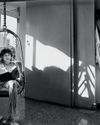
He gave the beat to the world
He would pick up the rhythms of each experience of mobility and weave them into his taals. Thus it was that he reflected joy and laughter in rhythmic cycles...such was the magic of Zakir's fingersText and photographs by Raghu Rai
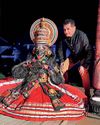
KERALA TOURISM CAMPAIGN, 1989 - TICKETS TO PARADISE
All it took was a catchy tagline-'God's Own Country'-for the world to discover Kerala's wealth of natural beauty. It remains among the best tourism ad campaigns, earning the state a place among top 10 international destinations

SPIRITUALITY - THE GURUS OF COOL
Among the cult Indian gurus, no one had a bigger hold on western minds than 'Osho' Rajneesh. He's also perhaps the role model for the enterprise-building gurus of today
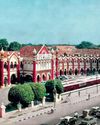
RETAIL SHOPPING - THE MALL MANIA
Shopping malls, a 1990s innovation in India, changed the way the Indian middle class shops. Their success now lies in being 'shoppertainment' destinations, offering something for everyone
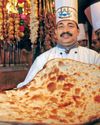
CULINARY RENAISSANCE, 1978 - TANDOORI NIGHTS
ITC's Bukhara and Dum Pukht turned the world to tandoori cuisine and had an enormous impact on the F&B industry. Decades on, they are still a pit-stop for celebrities and heads of state visiting Delhi
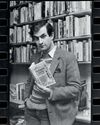
INDIAN WRITING IN ENGLISH - REVENGE OF THE NATIVE
Rushdie lit the way but Indian writing in English has taken a life of its own in the past few decades, with translated Indian fiction most recently having its moment in the sun
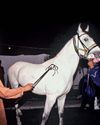
INDIAN ART - A BRUSH WITH GOLD DUST
The 1990s economic liberalisation came as oxygen, lighting up the Indian art scene. Today, artworks by established masters routinely go for astronomical amounts
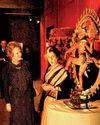
FESTIVAL OF INDIA, 1982 - CULTURE CAPITAL
The Festival of India grew into a symbol of our 'soft power', introducing our art and aesthetics to a global audience while also helping rebrand our domestic products

THE INDIPOP TREND - DISCO GOES DESI
For ages, the film song ruled. Nothing else was audible. Then came Nazia, charioteered by Biddu, and Indian ears went into a pleasant madness. Literally, Disco Deewane. A whole genre was born
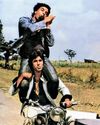
SHOLAY 1975 - THE BIRTH OF THE FANDEMIC
India had seen hits before. But Sholay seared into its collective psyche like a badland bullet. The effect was on a scale never seen before- one film creating a new mass folk culture. And a trail of monster blockbusters that still continues